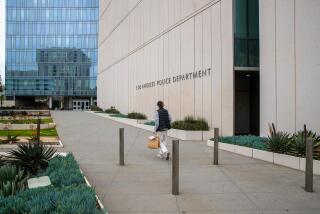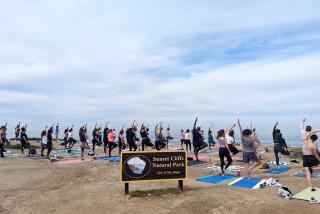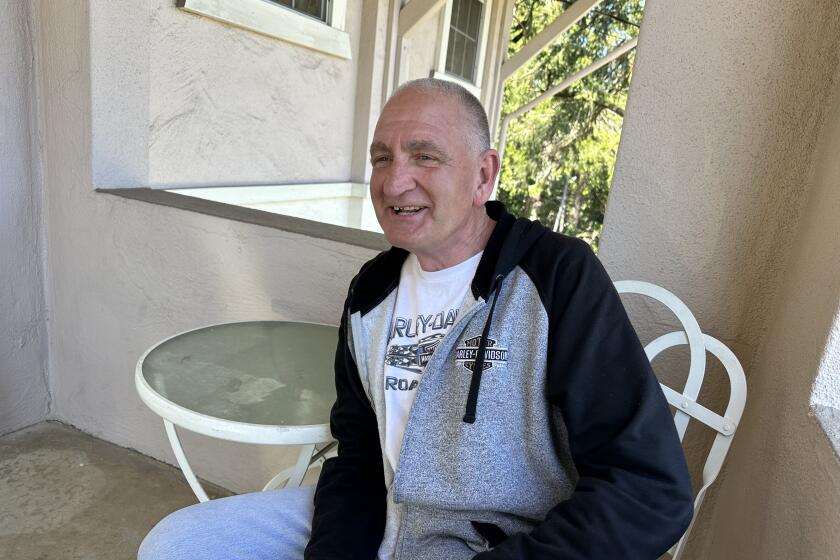Pacific Amphitheatre’s Operators Plan Appeal of Noise Ruling
Hours after a judge signed an order designed to force the Pacific Amphitheatre to reduce concert noise, operators said they will appeal and may ask for an immediate stay of the injunction.
“I will file a notice of appeal tomorrow (Thursday),” said Deborah Nesset, attorney for Ned West Inc., the firm that built and operates the Costa Mesa facility on a long-term lease with the state.
Orange County Superior Court Judge Gary L. Taylor’s preliminary injunction gives a noise monitor the authority to order Ned West to turn down volume, even in the middle of concerts. The summer season is to begin June 6.
Action Hailed
City officials, who have been in court trying to limit noise since before the amphitheater opened in 1983, hailed Taylor’s action.
“It is exhilarating,” Mayor Donn Hall said.
“It seems like every attempt we made to control it (noise), Ned West had a new trick up their sleeve. I still have my fingers crossed, but I think now there finally might be some relief for residents.”
The three-year lawsuit alleged that the summer seasons, which last year included 40 concerts, generate noise in violation of a county law. A group of nearby homeowners said that on some concert nights they could feel vibrations inside their homes from performances.
On May 8, Taylor announced his decision: Residents are captive to the intrusive concert noise. He said neighbors deserved noise controls so they may regain privacy, health and the “comfortable enjoyment of life.”
In later hearings, Taylor hammered out the details of the injunction, which provides for measuring the sound and a mechanism to control it.
Taylor named a special master to test-monitor concert sound, beginning in June. He designated the county Health Care Agency as the monitor. Agency noise expert Ellwyn Brickson headed a panel of six specialists who, at Taylor’s request, suggested terms of the injunction.
Taylor’s order calls for measuring sound levels within the amphitheater, at its edge, and in neighborhoods nearby. The experiment is designed to settle the major technical dispute of determining how much noise is generated by the concerts and how much comes from normal background sources, such as ground and air traffic.
Ned West attorneys have consistently said concert noise levels never exceeded county standards--a claim hotly contested by Richard Spix, attorney for the neighbors.
Lawyers for the state, which owns the fairgrounds on which the amphitheater was built, filed a suit last year that alleged violations of the lease, including excessive noise. But earlier this month, a deputy attorney general conceded in court that although the state believed Ned West was violating noise limits, it had no way of proving the contention.
Spix has said 24,000 people live within one mile of the Pacific Amphitheatre.
Hall said he remembers standing in a nearby neighborhood on the night of the first concert staged in the newly built facility in 1983.
“I stood a quarter-mile away in a residential street,” Hall said. “It was unbelievable, it was so loud. They have calmed it down since that time, but it’s still loud.”
Residents call the city to complain about noise; the largest number of complaints ever received for one concert was “about 90,” Hall said.
City lawyers have been in court throughout the ‘80s over the noise issue. Before the amphitheater was built, Costa Mesa sued the state in 1980, alleging that the planned facilities would violate local law, including noise limits. The suit ended in a settlement in which the state agreed to require any fairground tenant to abide by the county’s noise law.
After the amphitheater opened in 1983, city officials made headlines when they climbed onto the stage during rock concerts and ticketed performers for violating noise limits. Those citations were thrown out of court by a judge who ruled that the state is immune from such enforcement.
The city then filed a lawsuit seeking to enjoin concerts as a nuisance, but again got nowhere.
“It’s fantastic,” said City Atty. Thomas C. Wood, who has had a hand in most of the litigation involving the city.
“It’s long overdue. It should have been granted three years ago.”
Wood revealed Tuesday that $19,000 in city funds have been paid so far to support Spix’s private lawsuit.
The injunction will not go into effect until the homeowners can come up with about $8,000 to cover bonds and the costs of sound monitoring.
Spix could not be reached for comment, but Hall said he wants the city to pay and said he believed a majority of the City Council would agree.
Taylor’s order is the first ever issued restricting concert noise at the facility. It is preliminary and designed to provide a peaceful environment for residents until a full trial can be held in the case, which has not yet been scheduled.
Appeal Grounds Cited
For Ned West, attorney Nesset cited many grounds for a possible appeal.
She said Spix failed to demonstrate that the concerts violate the county law. She also questioned the legal basis for forcing Ned West to monitor sound levels or respond to any orders to turn sound down.
Last week Ned West filed declarations from agents for dozens of well-known musicians, saying they might not perform in Costa Mesa if sound levels are restricted.
More to Read
Start your day right
Sign up for Essential California for news, features and recommendations from the L.A. Times and beyond in your inbox six days a week.
You may occasionally receive promotional content from the Los Angeles Times.





